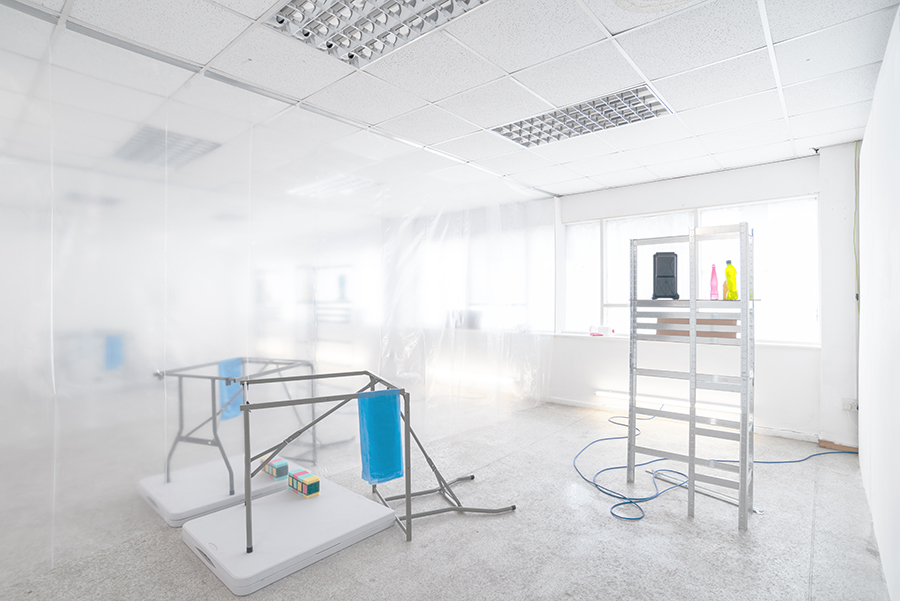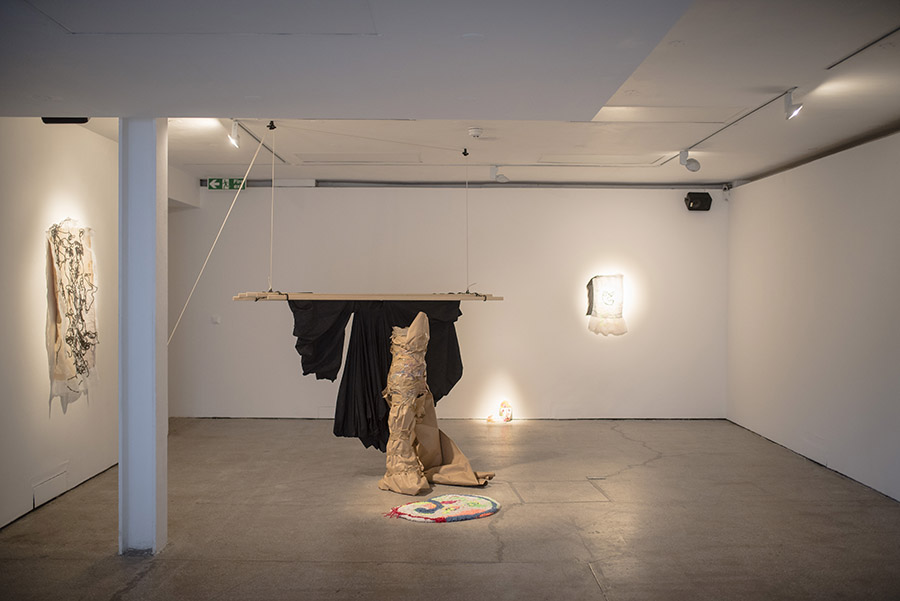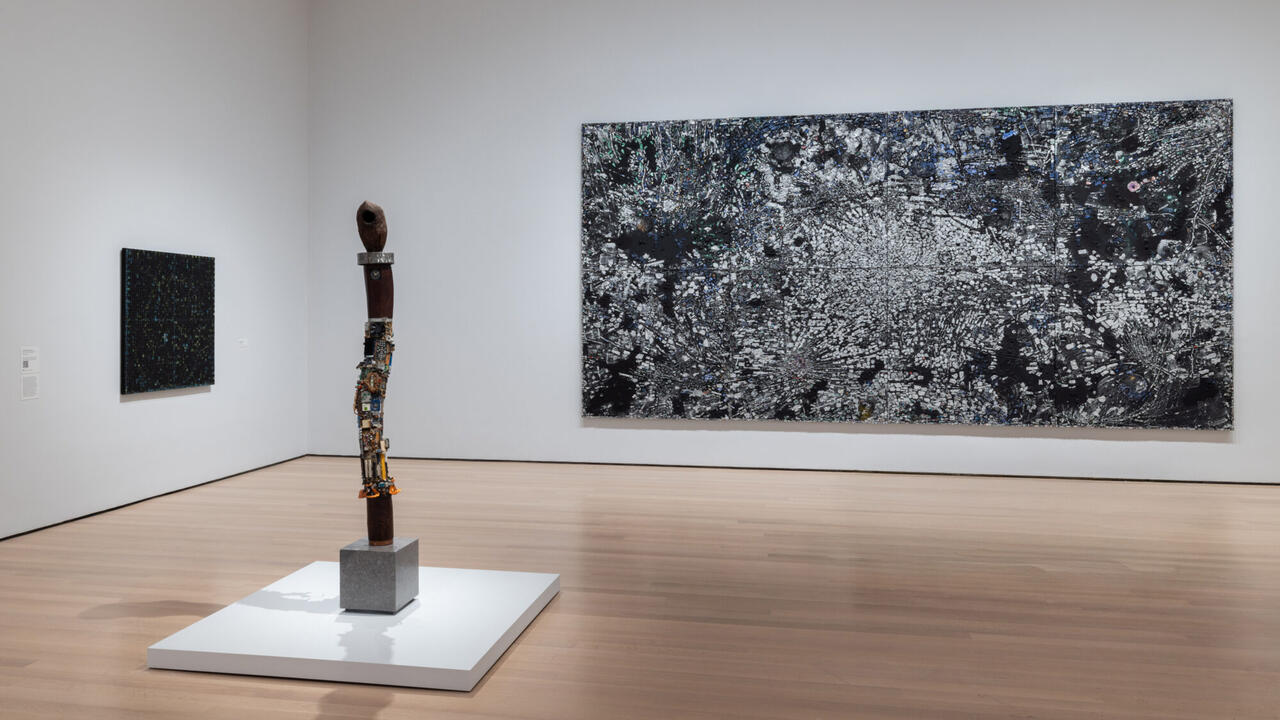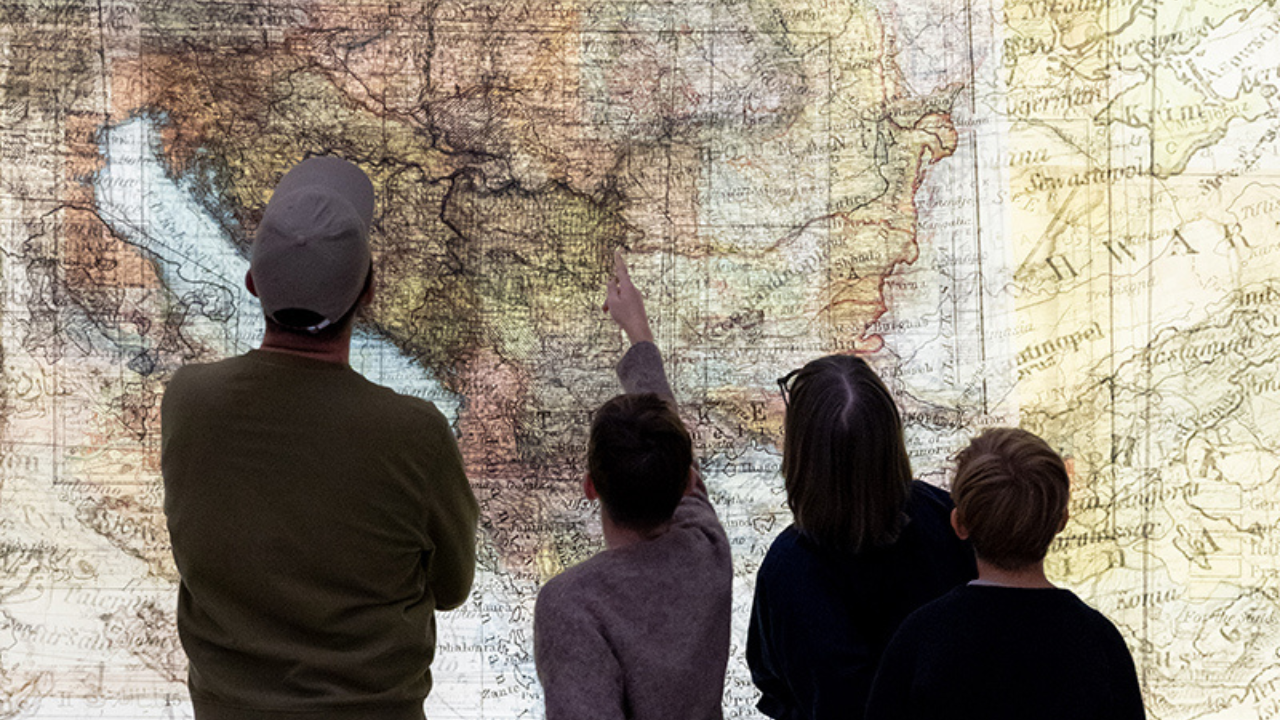In Manchester and Salford, Sustainable Artist-Run Spaces Power Forward
The area’s development boom isn’t just in luxury property – the art scene is determined to keep its place too
The area’s development boom isn’t just in luxury property – the art scene is determined to keep its place too

There’s a property boom in Manchester and Salford. Construction in the area – developing at an unprecedented rate – includes the region’s new flagship cultural venue, the Rem Koolhaas/OMA-designed The Factory, set to open in 2020 at a cost of GBP£110 million. All this, however, backdrops the continuing displacement of the cities’ artists, as studios continue to be razed by developers to make way for luxury accommodation. Recently, Salford-based Artwork Atelier learned that they will have to vacate their premises by August. Previously, at the end of 2016, the most high-profile example saw the long-established Rogue Artists’ Studios, which was home to more than 100 artists, having to vacate their site of more than 15 years. Rogue has thankfully been able to continue, albeit in a reduced capacity, with Manchester City Council helping to provide a new space in the suburb of Openshaw, evidently taking the same approach to artists’ studios that they do to affordable housing: it does not need to be within the city centre itself, that is increasingly reserved for the privileged few.

Despite this gloomy story – one that could be repeated for most major cities across the globe – there are reasons to be hopeful. In the fallout from Rogue’s closure, artists and former Rogue studio holders Hilary Jack and Lucy Harvey made the short journey west to Salford to found Paradise Works, which opened to the public in October 2017. Paradise Works has been a lifeline for artists wanting to retain some proximity to Manchester’s city centre, providing space for those displaced by Rogue’s move, as well as various other closures such as The Penthouse, the ongoing project of Roseanne Robertson and Debbie Sharp. With a culture-friendly developer on board in Urban Splash, as well as support from Salford City Council, Jack and Harvey are aiming to provide some stability for the group of artists that now call Paradise Works home, giving them an opportunity to think long-term and make work without having to worry about the looming threat of eviction. Whether Paradise Works can sustain this intention remains to be seen. Ultimately it is reliant on long-term support from Urban Splash, but feelings are nonetheless positive about the future.

While Paradise Works is a new addition to Salford’s cultural landscape, Islington Mill has been in the city for almost 20 years, providing space for studios, exhibitions, club nights and gigs. It has also hosted the Islington Mill Art Academy for the past ten years, which offers a free, peer-led alternative to increasingly expensive and consumerized traditional art school education. After a recent (successful) battle with the council over noise complaints – highlighting one of the key issues that increased residential development causes for cultural venues – the Mill now finds itself in a position to invest in the future and create room for the scene to grow and develop. This includes renovating the top two floors of its building, providing residency and workshop space as well as room for the Art Academy to expand. In addition, it is partnering with Salford City Council to launch a two-year pilot to develop a Cultural Community Land Trust, encompassing the Mill itself and the warehouses in the nearby trading estate. If successful, the scheme would provide long-term stability for artists’ studios – they have already been able to accommodate the artists who will have to leave Artwork Atelier – and for gallery spaces such as Caustic Coastal.

Since its move to a permanent venue in 2016, Caustic Coastal has quickly become one of the most exciting galleries in the area, giving solo shows to artists including Leo Fitzmaurice and Gabriel Birch, and currently exhibiting a series of shows curated by 2016 Woon Prize-winner Rebecca Halliwell-Sutton. Alongside Castlefield Gallery, Caustic Coastal fulfils an important role in between the artist-led projects and institutions, something that is currently underserved in Manchester and Salford. Castlefield Gallery’s current exhibition of Ruth Barker and Hannah Leighton-Boyce, was co-commissioned with the University of Salford Art Collection, whose pro-active commissioning and collecting policy is another positive sign for things to come.

With space increasingly at a premium, the area’s artist-led projects are becoming increasingly nomadic, relying on the support of the more established spaces to host them as the property boom makes it unrealistic to find, and keep hold of, spaces of their own. One such initiative, Scaffold Gallery, have recently opened their show ‘Never Gonna Give You Up’ at Islington Mill, inviting several of their former art school peers who have since fallen away from making work and exhibiting to return for this exhibition. This forms part of Scaffold’s ongoing objectives, which is to provide a support system for emerging artists, such as themselves, who are often unsure of their next steps upon leaving art school. Similarly nomadic, artists and curatorial duo Kieran Leach and Precious Innes, working under the moniker Show.me.up, have taken up residence in the Paradise Works project space with their first exhibition ‘Tipping the Scales’, which looks at work-life balance, and how for artists the two often overlap and become inseparable.
As property development continues, and the price of living in Salford and Manchester rapidly increases, making it increasingly difficult to actually live here, the art-scene itself is becoming increasingly resilient, determined to find and keep its place.
Main image: Paradise Works, Manchester, 2017. Courtesy: Paradise Works, Manchester; photograph: John Lynch




















